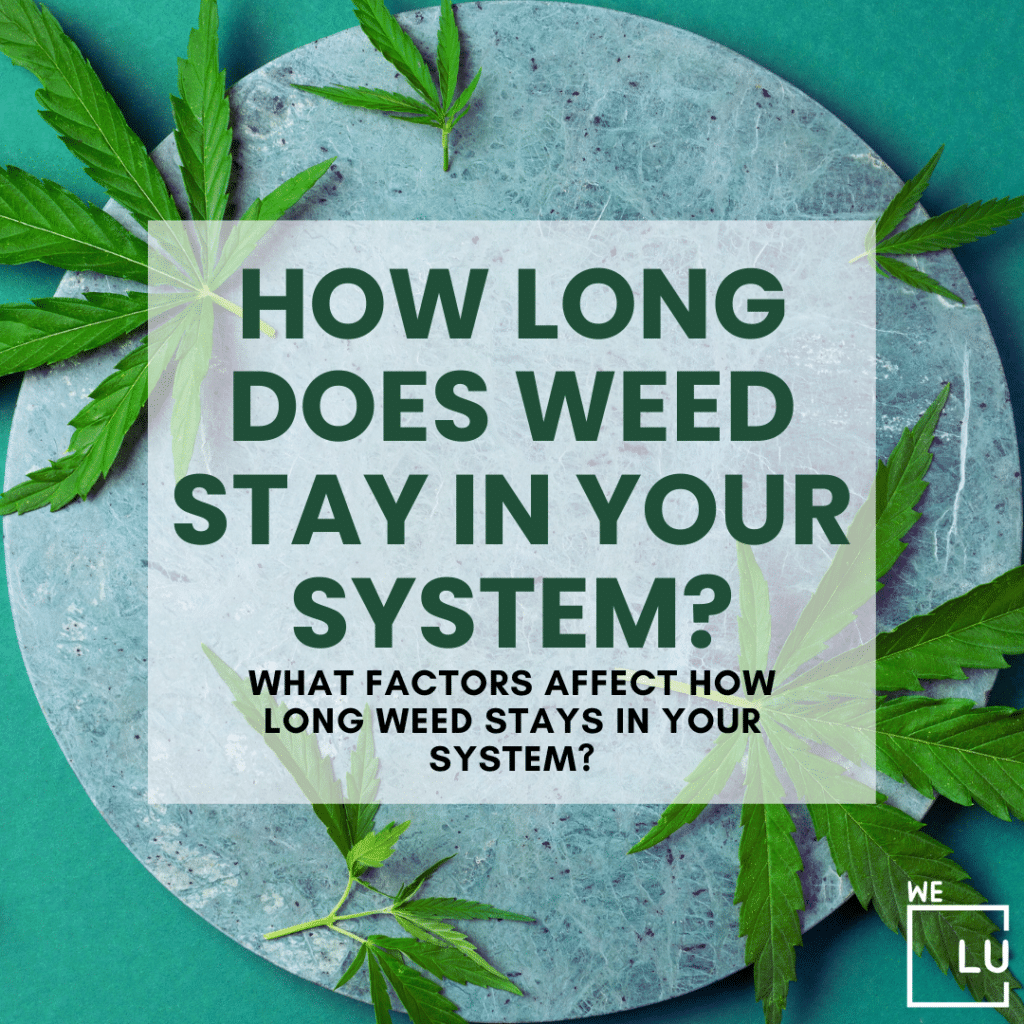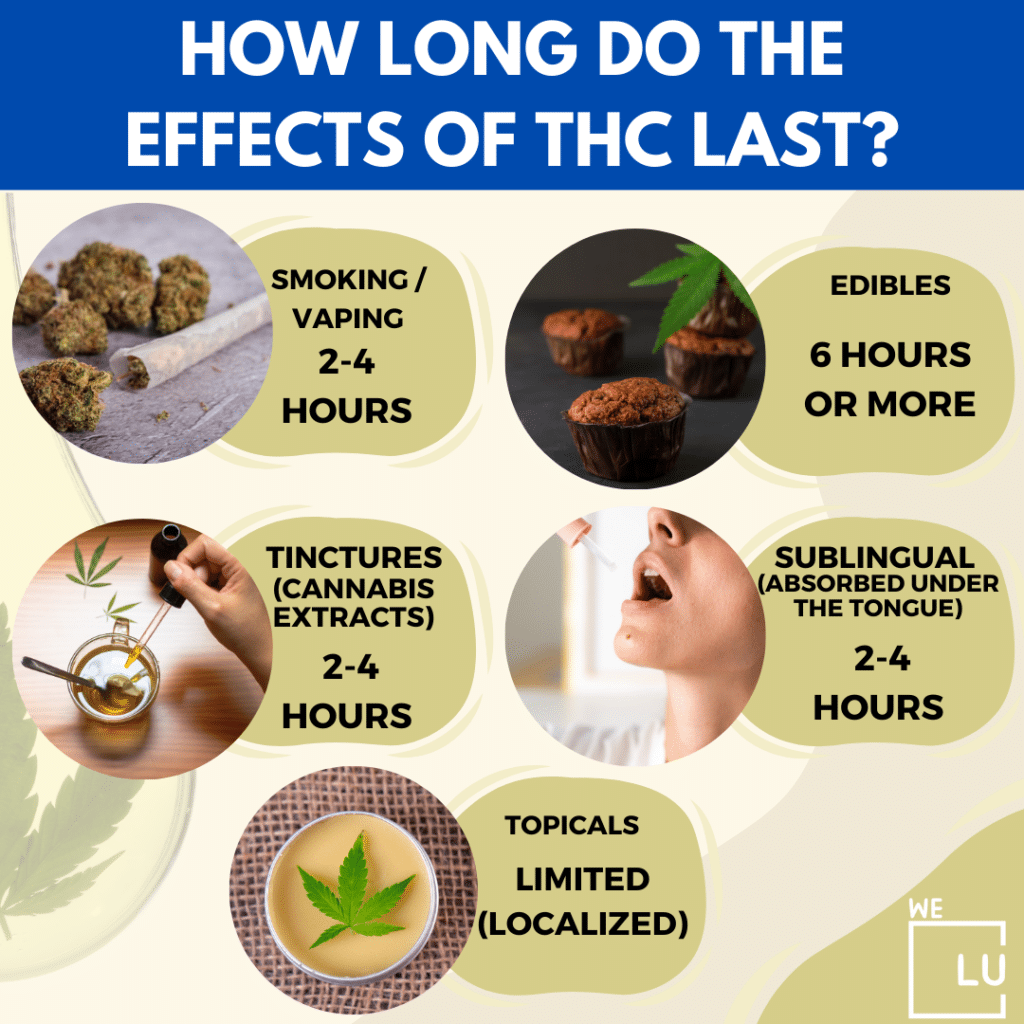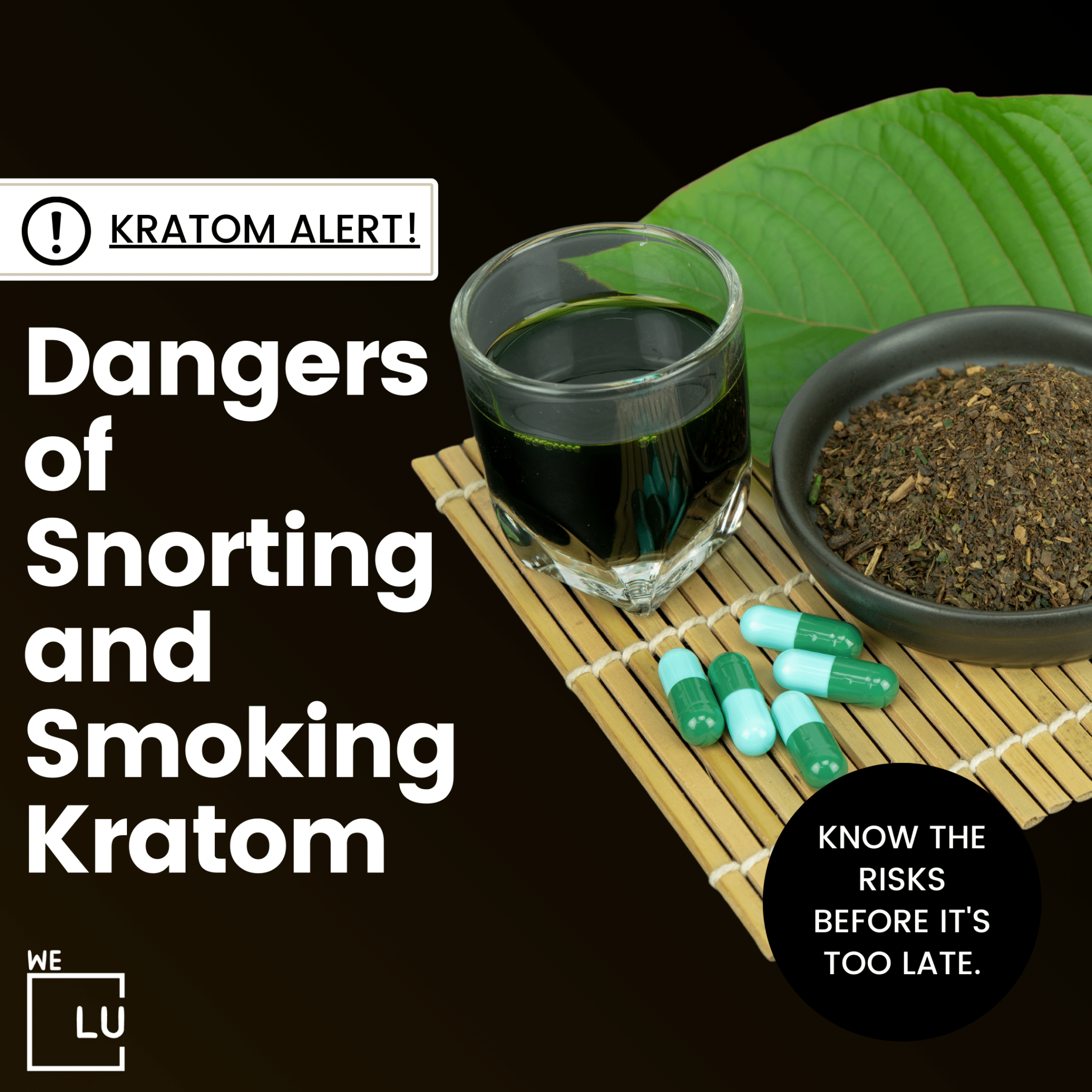What is Weed?
“Weed” is a colloquial term that is often used to refer to cannabis, a genus of flowering plants that includes three primary species: Cannabis sativa, Cannabis indica, and Cannabis ruderalis. The plant is known for its psychoactive properties due to the presence of compounds called cannabinoids, the most well-known being delta-9-tetrahydrocannabinol (THC).
Cannabis has been used for various purposes throughout history, including for medicinal, recreational, and industrial use. It contains over 100 cannabinoids, each with its effects on the body. In recent years, there has been increasing interest and debate around the legalization and use of cannabis for both medical and recreational purposes in various parts of the world.
There might come a point where, if you use weed, you will be asked to take a drug test. Read on to find out how long does weed stay in your blood stream or your system in general.
How Long Does Marijuana (Weed) Stay In Your System?
The duration that weed stays in your system depends on several factors, including the frequency of use, the potency of the cannabis, metabolism, and individual characteristics.
THC, the psychoactive compound in cannabis, is typically detectable in urine for an average of 3 to 30 days after use, with heavy or frequent users having a longer detection window. THC can be detected in blood for a few hours to one to two days after use. Hair follicle tests can show THC presence for up to 90 days, though they are less common. Saliva tests generally have a shorter detection window, ranging from a few hours to up to two days.
These are general estimates, and individual variations may occur. Factors such as hydration, body fat percentage, and exercise can influence the elimination of THC from the body. While acute effects of cannabis use may last only a few hours, traces of THC metabolites can persist in the body for an extended period, impacting drug tests even after the immediate effects have worn off.
How Long Does Weed Stay In Your Blood Stream?
How long does THC stay in your blood? When marijuana is smoked, THC rapidly enters the bloodstream through the lungs, resulting in a quick onset of effects. Blood tests are often used to detect recent cannabis use, especially in scenarios like driving under the influence (DUI) investigations.
How Long Does Weed Stay In Urine?
The duration that weed (cannabis) stays detectable in urine depends on various factors, including frequency of use, metabolism, and the sensitivity of the drug test. In general, THC, the psychoactive compound in cannabis, and its metabolites can be detected in urine for varying lengths of time.
For infrequent or one-time users, THC can typically be detected in urine for about 3 to 7 days. For regular users who partake multiple times a week, THC can be detectable for 1 to 2 weeks or more. In cases of heavy, chronic use, THC metabolites can sometimes be detected in urine for up to 30 days or longer.
How Long Does Weed Stay In Saliva?
The detection window for weed (cannabis) in saliva is relatively short compared to other testing methods. Typically, THC, the psychoactive compound in cannabis, can be detected in saliva for a few hours to up to 72 hours after use. The exact duration varies based on factors such as the individual’s metabolism, the potency of the cannabis, and the frequency of use.
THC is usually detectable in saliva for occasional or one-time users for about 1 to 24 hours. For regular or frequent users, detection may extend up to 72 hours. It’s worth noting that these are general estimates, and individual variations can occur.
Saliva tests are often used for roadside testing or in situations where recent use is a concern. Unlike urine tests, saliva tests are better at detecting recent cannabis use rather than past use.
How Long Does Weed Stay In Hair?
Cannabis (weed) and its metabolites can be detected in hair for a much longer duration compared to other testing methods. When someone uses cannabis, traces of THC (tetrahydrocannabinol) and its metabolites are deposited into the hair follicles through the bloodstream. As hair grows, these compounds become embedded in the hair shaft.
Hair tests can detect cannabis use for an extended period, often up to 90 days or even longer. The standard length of a hair sample tested is typically 1.5 inches (3.81 cm), representing about three months of hair growth.
Factors like hair color, hair type, and individual variations in hair growth rates can affect the accuracy of hair tests. Additionally, hair tests are not as effective in detecting very recent drug use, as it takes time for the metabolites to be incorporated into the hair.
Hair testing is less commonly used than urine or saliva testing due to its longer detection window and the fact that it does not provide information about recent drug use. However, it may be employed in certain situations where a longer historical record of drug use is desired.

Skip To:
Learn More:
- How Long Does THC Stay in the System? Understanding Detection Times in Urine, Saliva, and Blood Tests
- What Does THC Do to the Brain? Long-Term Effects of Marijuana
- THC Withdrawal, Symptoms, Timeline, and Treatment
- Best THC Detox To Pass Drug Tests. THC Detox Drinks. THC Detox Effective & Fast Methods.
- Dab Weed Health Effects, Addiction, Overdose & Treatment
- How Long Does THC Stay In Urine? How Long Does Weed Stay In Your System?
Weed Detection Times In Drug Tests
| Drug Test Type | Detection Window |
|---|---|
| Urine | Up to 3 to 30 days after last use |
| Blood | Up to a few hours to 2 days after use |
| Saliva | Up to 24 to 72 hours after last use |
| Hair | Up to 90 days or longer, depending on hair length |

Get Your Life Back
Find Hope & Recovery. Get Safe Comfortable Detox, Addiction Rehab & Dual Diagnosis High-Quality Care.
Hotline (855) 695-1160What Factors Affect How Long Weed Stays In Your System?
Several factors can influence how long weed (cannabis) stays in an individual’s system. These factors contribute to the variability in detection times across different people. Here are some key factors:
- Frequency of Use: Individuals who use cannabis more frequently are likely to have longer detection times. Regular or chronic users may accumulate higher levels of THC (tetrahydrocannabinol, the psychoactive compound in cannabis) and its metabolites in their system.
- Dosage and Potency: The potency of the cannabis consumed plays a role. Higher THC concentrations can result in increased levels of THC metabolites in the body.
- Method of Consumption: The form of cannabis consumption can affect how quickly THC enters and exits the body. Smoking or vaporizing cannabis tends to have a more immediate impact than consuming edibles, for example.
- Metabolism: Individual metabolism varies, impacting how quickly the body processes and eliminates THC. Those with faster metabolisms may eliminate THC more rapidly than individuals with slower metabolisms.
- Body Fat Percentage: THC is fat-soluble and can be stored in fat cells. Individuals with higher body fat percentages may hold THC for a longer time as compared to those with lower body fat.
- Hydration: Adequate hydration can help flush substances from the body more efficiently. However, excessive hydration immediately before a drug test may dilute urine, potentially affecting the accuracy of the test.
- Exercise: Regular physical activity can boost metabolism and help eliminate THC. However, intense exercise shortly before a drug test may temporarily increase THC levels in the urine.
- Genetics: Genetic factors can influence how the body processes and eliminates substances. Enzymes involved in drug metabolism can vary among individuals.
- Type of Drug Test: Different drug tests have varying sensitivities and detection windows. Urine, blood, saliva, and hair tests each have different time frames for detecting cannabis use.
- Individual Variation: Each person’s body reacts uniquely to cannabis, and factors such as overall health and stress levels can influence how long THC remains detectable.
Get Help. Get Better. Get Your Life Back.
Searching for an Accredited Drug and Alcohol Rehab Centers in Near You?
Even if you have failed previously and relapsed, or are in the middle of a difficult crisis, we stand ready to support you. Our trusted behavioral health specialists will not give up on you. When you feel ready or just want someone to speak to about therapy alternatives to change your life call us. Even if we cannot assist you, we will lead you to wherever you can get support. There is no obligation. Call our hotline today.
FREE Addiction Hotline – Call 24/7
How Does Your Body Process Weed?
When you consume weed (cannabis), the active compounds, primarily delta-9-tetrahydrocannabinol (THC), interact with your body’s endocannabinoid system, leading to various physiological and psychological effects. The process of how your body processes weed involves absorption, distribution, metabolism, and elimination. Here’s an expanded overview:
- Absorption:
- Inhalation: Smoking or vaporizing cannabis allows THC to be rapidly absorbed through the lungs and into the bloodstream. This method produces effects within minutes.
- Ingestion: Consuming cannabis through edibles or beverages results in slower absorption as THC passes through the digestive system. Effects may take longer to onset, typically within 30 minutes to a few hours.
- Distribution:
- Once in the bloodstream, THC is distributed throughout the body. Its lipophilic (fat-loving) nature allows it to easily cross the blood-brain barrier, leading to its psychoactive effects on the central nervous system.
- Metabolism:
- The liver plays a crucial role in metabolizing THC. It is converted into various metabolites, the primary being 11-hydroxy-THC, which is also psychoactive. The liver’s enzymes, primarily cytochrome P450, are involved in this metabolic process.
- Elimination:
- Metabolites of THC are eliminated from the body through urine and feces. Most THC and its metabolites are excreted through the feces, while a smaller portion is eliminated through the urine.
- Half-Life:
- The elimination half-life of THC varies among individuals but is generally short, estimated to be around 1 to 2 days. This means that it takes this amount of time for the concentration of THC in the bloodstream to decrease by half.
- Storage in Fat Tissues:
- THC is fat-soluble, and it can be stored in fat tissues. THC and its metabolites can be detected in bodily fluids and tissues, such as urine and hair, for an extended period, especially in individuals with higher body fat percentages.
- Endocannabinoid System (ECS):
- THC exerts its effects by interacting with receptors in the endocannabinoid system (ECS). The ECS plays a role in maintaining homeostasis in the body, influencing functions such as mood, appetite, sleep, and immune response.
First-class Facilities & Amenities
World-class High-Quality Addiction & Mental Health Rehabilitation Treatment
Rehab Centers TourRenowned California Addiction Center. Serene Private Facilities. Inpatient rehab programs vary.
Addiction Helpline (855) 695-1160Proven recovery success experience, backed by a Team w/ History of:
15+
Years of Unified Experience
100s
5-Star Reviews Across Our Centers
10K
Recovery Success Stories Across Our Network
- Low Patient to Therapist Ratio
- Onsite Medical Detox Center
- Comprehensive Dual-Diagnosis Treatment
- Complimentary Family & Alumni Programs
- Coaching, Recovery & Personal Development Events
How Long Do The Effects Of Weed Last?
| Method of Consumption | Onset of Effects | Duration of Effects |
|---|---|---|
| Smoking/Vaping | Rapid (minutes) | 2-4 hours |
| Edibles | Slow (30 min – 2 hours) | Up to 6 hours or more |
| Tinctures | Variable | 2-4 hours |
| Topicals | Variable | Limited (localized) |
| Sublingual (under the tongue) | Rapid (minutes) | 2-4 hours |
The duration of the effects of weed, or cannabis, can vary widely based on factors such as the method of consumption, the potency of the strain, individual tolerance, and metabolism. Generally, when smoked or vaporized, the onset of effects is rapid, typically within minutes, and the peak effects are felt within the first 30 minutes to an hour. The total duration of these effects can last anywhere from 2 to 6 hours, with a gradual decline as the body metabolizes THC (tetrahydrocannabinol).
When cannabis is consumed orally, such as in edibles, the onset is slower, usually taking 30 minutes to a few hours to feel the full effects, but the duration can be longer, lasting up to 8 hours or more.
How Long Does It Take For Weed To Wear Off?
The time it takes for THC (tetrahydrocannabinol) to wear off varies based on several factors, including the method of consumption, the frequency of use, individual metabolism, and overall health. After smoking or vaping, the psychoactive effects typically peak within the first 30 minutes to an hour and gradually decline over the next few hours. The acute effects can last for approximately 2 to 4 hours but may persist longer in some cases.
For infrequent users, THC metabolites are generally eliminated from the body within a few days to a week. However, for regular or heavy users, THC can be detectable in urine for several weeks. It’s important to note that while the acute effects of THC wear off relatively quickly, traces of THC metabolites can linger in the body, impacting drug test results and contributing to a more extended overall detection period.
World-class, Accredited, 5-Star Reviewed, Effective Addiction & Mental Health Programs. Complete Behavioral Health Inpatient Rehab, Detox plus Co-occuring Disorders Therapy.
CALL (855) 695-1160End the Addiction Pain. End the Emotional Rollercoaster. Get Your Life Back. Start Drug, Alcohol & Dual Diagnosis Mental Health Treatment Now. Get Free No-obligation Guidance by Substance Abuse Specialists Who Understand Addiction & Mental Health Recovery & Know How to Help.
How To Get Weed Out Of Your System?
To expedite the elimination of weed from your system, several general strategies can be used. Firstly, increasing water intake can help flush out toxins through urine. Additionally, engaging in regular exercise can enhance metabolism and fat burning, potentially reducing the presence of THC stored in fat tissues. A diet rich in fiber may aid in the elimination of THC through feces. Time is also a crucial factor, as abstinence allows the body to naturally clear THC and its metabolites.
However, these methods are not foolproof, and individual factors such as metabolism and body composition can influence the effectiveness of these approaches. Consulting with healthcare professionals for personalized advice is recommended.
Is Weed Addictive?
The question of whether weed (cannabis) is addictive is a topic of ongoing debate among experts. While cannabis is not considered as addictive as substances like nicotine or opioids, it can lead to a substance use disorder in some individuals. Several factors, including the frequency of use, the potency of the cannabis, and individual susceptibility, influence the addictive potential of weed.
The active compound in cannabis, delta-9-tetrahydrocannabinol (THC), interacts with the brain’s reward system, and regular use can lead to the development of tolerance and dependence in some users. Tolerance may require individuals to consume increasing amounts of cannabis to achieve the desired effects, and dependence can result in withdrawal symptoms when use is discontinued.
However, not everyone who uses cannabis will develop a substance use disorder, and many people use it without experiencing significant negative consequences. Factors such as genetics, mental health, and environmental influences also play a role in an individual’s susceptibility to addiction.
The term “addiction” is used to describe a spectrum of behaviors related to substance use, and not all cannabis users will exhibit addictive behaviors. Additionally, the legalization and increased acceptance of cannabis in various places have prompted more research into its effects, including its potential for addiction.
If you have concerns about cannabis use and its potential for addiction, do seek guidance from healthcare professionals or addiction specialists who can provide personalized information and support.

Experience Transformative Recovery at the We Level Up California Treatment Center.
See our authentic success stories. Get inspired. Get the help you deserve.



Start a New Life
Begin with a free call to an addiction & behavioral health treatment advisor. Learn more about our dual-diagnosis programs. The We Level Up treatment center network delivers recovery programs that vary by each treatment facility. Call to learn more.
- Personalized Care
- Caring Accountable Staff
- World-class Amenities
- Licensed & Accredited
- Renowned w/ 100s 5-Star Reviews
We’ll Call You
How to Navigate Life. “I was a Slave to Alcohol & Drug Addiction for 17 Years.” Recovery is Great!
Search How Long Does Weed Stay In Your Blood Stream Drug & Alcohol Rehab / Detox & Mental Health Topics & Resources
Sources
- Anderson, B. M., et al. (2011). Sex, drugs, and cognition: Effects of marijuana [Abstract]. https://www.tandfonline.com/doi/abs/10.1080/02791072.2010.10400704 Related Article: how long does weed stay in your blood for? How long does thc stay in your blood? how long does marijuana stay in blood?
- Sharma, P., et al. (2012). Chemistry, metabolism, and toxicology of cannabis: Clinical implications. https://www.ncbi.nlm.nih.gov/pmc/articles/PMC3570572/ Related Article: how long does weed stay in your blood for? How long does thc stay in your blood? how long does marijuana stay in blood?
- Taylor, M., et al. (2017). Comparison of cannabinoids in hair with self-reported cannabis consumption in heavy, light and non-cannabis users. https://www.ncbi.nlm.nih.gov/pmc/articles/PMC5396143/ Related Article: how long does weed stay in your blood for? How long does thc stay in your blood? how long does marijuana stay in blood?
- Verstraete, A. G. (2004). Detection times of drugs of abuse in blood, urine, and oral fluid. https://pdfs.semanticscholar.org/157f/ce13e153e873b50b8644e34be07610800ffc.pdf Related Article: how long does weed stay in your blood for? How long does thc stay in your blood? how long does marijuana stay in blood?
- Alvarez JC, et al. (2021). Population pharmacokinetic model of blood thc and its metabolites in chronic and occasional cannabis users and relationship with on-site oral fluid testing.https://pubmed.ncbi.nlm.nih.gov/33386756/ Related Article: how long does weed stay in your blood for? How long does thc stay in your blood? how long does marijuana stay in blood?
- Bergamaschi M, et al. (2013). Impact of prolonged cannabinoid excretion in chronic daily cannabis smokers’ blood on per se drugged driving laws. https://www.ncbi.nlm.nih.gov/pmc/articles/PMC3717350/ Related Article: how long does weed stay in your blood for? How long does thc stay in your blood? how long does marijuana stay in blood?
- Hadland D, et al. (2017). Objective testing – urine and other drug tests. https://www.ncbi.nlm.nih.gov/pmc/articles/PMC4920965/ Related Article: how long does weed stay in your blood for? How long does thc stay in your blood? how long does marijuana stay in blood?
- Moeller K, et al. (2017). Clinical interpretation of urine drug tests: what clinicians need to know about urine drug screens. https://www.mayoclinicproceedings.org/article/S0025-6196(16)30825-4/fulltext Related Article: how long does weed stay in your blood for? How long does thc stay in your blood? how long does marijuana stay in blood?
- What are marijuana’s effects? (2020). https://nida.nih.gov/publications/research-reports/marijuana/what-are-marijuana-effects
- McNeil SE, Cogburn M. (2022). Drug Testing. In: StatPearls [Internet]. Treasure Island (FL): StatPearls Publishing. Related Article: how long does weed stay in your blood for? How long does thc stay in your blood? how long does marijuana stay in blood?




